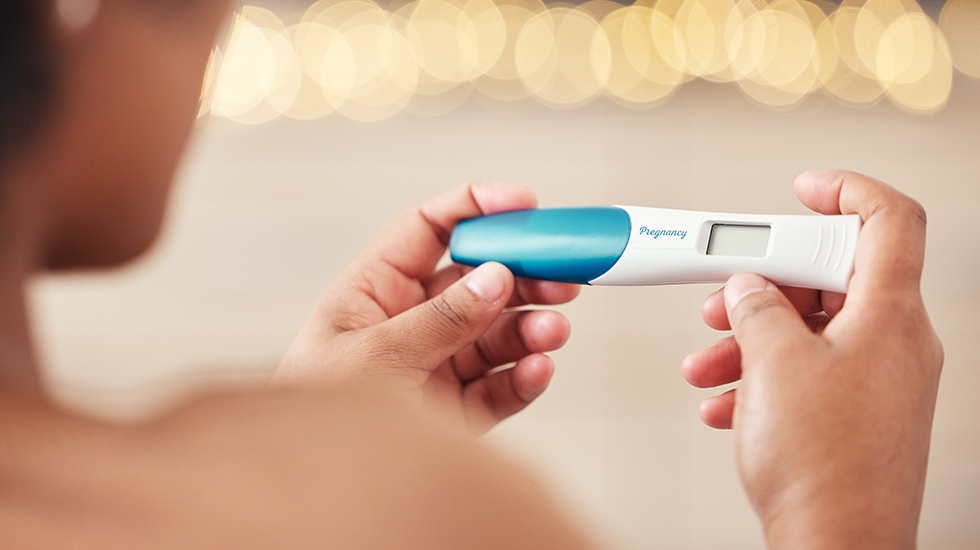


Written in collaboration with Tanya Franklin, MD, MSPH, FACOG
When a woman is diagnosed with breast cancer, there are many concerns and uncertainties that may come up. What treatment is right for me? What are the side effects and how will they make me feel? What does the future hold?
For young women diagnosed with breast cancer, there may be an additional concern: Will breast cancer or treatment affect my future fertility? The incidence rate of breast cancer in young women is low, with about 10% of new breast cancer cases diagnosed in women under 45. Though the incidence is low, many of these women may be looking to start or expand their families when they are diagnosed.
We recently spoke with fertility expert and OBGYN Tanya Franklin, MD, MSPH, FACOG, who answered our most-asked questions about how breast cancer and breast cancer treatment may affect a woman’s future fertility and ability to conceive.
Answer: Breast cancer itself does not cause infertility. When a diagnosis of breast cancer is given, many characteristics of that breast cancer determine the chance of it impacting future fertility. These characteristics include the type of breast cancer, the stage of breast cancer, and the treatment options chosen.
A: The short answer is that some breast cancer treatments can lead to infertility, depending on what type of treatment is received. Women are born with 1-2 million eggs in their ovaries. Although we typically mature one egg and release (ovulate) it each month for a chance at pregnancy, we also lose 1,000 immature eggs every month naturally. As we age, we know our fertility decreases, with the average age of menopause (when menstruation stops and women can no longer become pregnant) being 51 years old. The type of cancer that is diagnosed and the type of treatment chosen to treat it will determine if that fertility timeline is changed.
A: Advancements in breast cancer treatment options have made tremendous strides, and today there are many options to treat breast cancer. Some treatment options will not impact fertility, while other options can impact fertility in different ways.
A: Breast cancer itself does not cause menopause. However, certain treatments for breast cancer can induce early or premature menopause. In some instances, this menopausal state can be reversible.
There are many mental, social, and physical ways you can prepare for menopause, including:
A: When you are diagnosed with breast cancer, you may feel overwhelmed. You will be speaking with doctors about treatment options, self-care, and how your diagnosis will impact your life moving forward. Many women are taken by surprise when they also have to consider their fertility, when it may not have been at the forefront of their lives at the time of diagnosis.
Early conversations about fertility desires are important to help reduce the overwhelm you may feel with a new diagnosis. Support from a partner and family is also crucial to determine if future fertility is a priority in your overall care. Fertility is an important topic to discuss because there are options to preserve your future childbearing, if that is a desire. It is also an opportunity to plan for your future after treatment is completed. If your doctors don’t mention fertility preservation options before your treatment is set to start, don’t hesitate to bring the topic up yourself.
If you wish to preserve your fertility before breast cancer treatment begins, your doctors will refer you to a fertility specialist to discuss all options. Some options to preserve fertility include:
Building a family after breast cancer treatment can happen through many options. If fertility or the ability to carry a child cannot be preserved through treatment, many women may choose to obtain donor oocytes (eggs) for IVF, have a surrogate carry a pregnancy, or pursue adoption.
A: Studies have shown no significant increase in breast cancer risk or recurrence risk in women who underwent IVF treatments when compared to women who did not undergo IVF treatments.
A: Knowledge is power and empowers you to make the best decisions for yourself and your family. Questions to ask your care team about fertility before beginning treatment may sound like:
A breast cancer diagnosis often causes a wide range of emotions, including fear, sadness, worry, and even anger. Young women whose future fertility may be impacted by breast cancer treatment need additional support from family, spouses or partners, friends, and loved ones.
Support groups are a good way for women to seek out the help and support they need from others facing a similar situation. NBCF offers free support groups for breast cancer patients and survivors. Additionally, the Young Survival Coalition offers support groups tailored to younger women who may be facing fertility issues due to breast cancer treatment.
National Breast Cancer Foundation is here for you as you navigate a breast cancer diagnosis. Visit our website to learn about NBCF breast cancer support groups, obtain free educational resources, or find a patient navigator in your area.
The information provided in this article should serve as a general guide and should not be used for the diagnosis or treatment of a medical condition. Always discuss aspects of your health, treatment, and fertility with your individual care team.
References:
American College of Obstetricians and Gynecologists (ACOG). “Female Age-Related Fertility Decline”. Committee Opinion Number 589. March 2014.
American College Of Obstetricians and Gynecologists (ACOG). FAQs: Breast Cancer Survivorship: Health and Fertility After Treatment. https://www.acog.org/womens-health/faqs/breast-cancer-survivorship-health-and-fertility-after-treatment
American Society for Reproductive Medicine. “Fertility Drugs and Cancer: A Guideline (2024)”. https://www.asrm.org/practice-guidance/practice-committee-documents/fertility-drugs-and-cancer-a-guideline-2024/#:~:text=A%20large%20cohort%20study%20evaluated,%E2%80%931.36)%20(83)
Healthline https://www.healthline.com/health/breast-cancer/vitamins-supplements
U.S. Centers for Disease Control & Prevention https://www.cdc.gov/bring-your-brave/breast-cancer-in-young-women/
Donations are always appreciated, but there are lots of great ways to get involved.